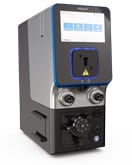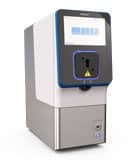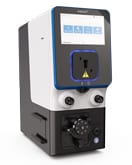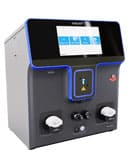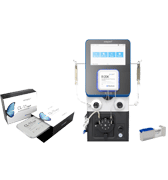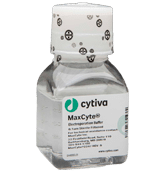Scientific Poster
MaxCyte® Flow Electroporation Technology: A Safe, Reliable and Effective Method for Engineering CAR T Cells
Abstract
Recombinant T cell expression of Chimeric Antigen Receptors (CARs) has shown extraordinary efficacy in numerous clinical trials as an adoptive cell therapy to treat hematological malignancies. Still, CAR T therapy faces significant challenges, ranging from long lead times and expensive manufacturing to complicated vector-engineering. Also, CAR T cell production routinely employs random integration of viruses or transposons, which carries an inherent risk of genotoxicity and costly, long-term patient follow-up. CAR engineering by transient mRNA transfection could be safer but more cost-prohibitive, requiring several doses per patient. DNA is a promising alternative but can cause sensitive T cells to lose functional capacity or induce apoptosis.
Here we describe Nano-S/MARt (nS/MARt), a novel DNA vector platform for stable CAR expression with minimal disruption of T cell activity. This antibiotic-free, nanovector technology uses scaffold/matrix attachment regions (S/MARs) for DNA vector maintenance and replication, and transfects primary human T cells efficiently and without toxicity. When combined with GMP-compliant MaxCyte Flow Electroporation® and CliniMACS Prodigy® automated cell processing, nS/MARt enabled the production of recombinant T cells with stable CAR expression and enhanced anti-tumor activity in only five days. The result was a shortened manufacturing protocol, producing safer cell therapeutics for thousands of patients from a single batch.
Optimized Nanovectors Provide Prolonged Transgene Expression in Primary CD3+ Cells






Figure 1: Electroporation of nS/MARt vectors provides long- term transgene expression in T cells. A) Schematic of a generic nS/MARt vector. B) nS/MARt vector expressing the CEA-CAR was delivered with high efficacy and viability into activated human CD3+ cells with the MaxCyte ExPERT GTx® instrument; 125 μg/mL of DNA was delivered to 3 x 108 cells using a CL-1.1 Processing Assembly and the Expanded T cell 3 program. C) Upon transfection with nS/MARt plasmids, the CD4:CD8 ratio in cells of healthy volunteers was not affected (n=3), and D) the proliferation of CD3+ cells treated with nS/MARt vectors was not affected.
nS/MARt Delivery by Electroporation Has Minimal Impact on Human T Cells and Provides Superior Functionality








Figure 2: Transcriptome and functional analysis of nS/MARt CAR T cells. A) CEA-CAR T cells generated by MaxCyte electroporation with nS/MARt or by lentiviral transduction were analyzed by FACS for expression of the transgene and compared to mock cells. Both methods produced a similar percentage of CAR T cells. B) The modified cells were then analyzed with the ESCAPETM RNAseq proteogenomic platform (Proteona). tSNE projection of RNAseq reads is shown. Colors indicate clusters of cells identified by the transfection method (n=2757 cells). C) Volcano plots display the transcriptional profile of lentivirally transduced CAR T cells, nS/MARt electroporated CAR T cells or mock electroporated T cells. When T cells transduced with lentiviral vectors were compared to unmodified parental cells, 106 genes were differentially expressed. The most prominently regulated genes belonged to the IFIT family or encoded for chemokines. Interestingly, electroporation of nS/MARt led to only 61 differentially regulated genes. D) The top 100 upregulated genes in cells transduced with lentivirus underwent hierarchical cluster analysis compared to untransfected and electroporated cells. GO term analysis was performed on the complete list of significantly upregulated genes in each transfection method using GO terms and the PANTHER classification system. E) GSEA of all differentially expressed genes for each modified T cell approach reveals a more naïve T cell phenotype after nS/MARt transfection. F) The efficacy of tumor target killing was assessed in a real-time in vitro killing assay, where 2.5 x 104 target cells were seeded on day 0. Effector CAR cells were added on day 1 at a 1:1 effector-to-target ratio. The EC50 for effector nS/MARt CAR T-generated cells was shorter than the cells generated with LV."
nS/MARt T Cells Mediate Efficient Tumor Killing in vivo




Figure 3: Targeting and killing of tumor cells expressing the human CEA epitope in a pre-clinical model. For the CEA model, 1 x 106 cells were implanted subcutaneously in NSG mice. On day 7, the mice were treated with mock, and CAR T cells generated with LV and nS/MARt. A & B) Tumor growth was monitored routinely, and survival of mice recorded. C) nS/MARt CAR T cells showed higher infiltration in tumors compared to LV-transduced cells. D) The outgrown tumors showed a loss in expression of target antigen in treated groups but remained expressed in mice treated with unmodified CD3+.
Development of GMP-Compatible, Large-Scale CAR T Cell Manufacturing with nS/MARt Vectors

Figure 4: Large-scale, GMP-compatible production of nS/MART T cells. For translation into a clinically relevant application of nS/MARt T cells, a manufacturing protocol was developed to allow the generation of clinical-grade recombinant T cells. For this, we coupled the CliniMACS Prodigy device (Miltenyi®), a fully automated and closed system for the isolation and culturing of primary human CD3+ cells, with the ExPERT GTx extra-large scale electroporation platform (MaxCyte).




Figure 4 (continued): A) CD3+ cells were isolated from a leukapheresis product with the TCT process using the CliniMACS Prodigy and activated for 3 days with T cell TransActTM, IL-7, and IL-15. On day 3, 1 x 108 cells were counted and electroporated with 125 μg/ml of DNA using the GTxTM device. B) Shortly after electroporation, the cells were returned to the CliniMACS Prodigy and fed with IL-7 and IL-15 supplemented medium for one day. On day 5, cells were harvested and analyzed by FACS for CAR expression. C) The capability for killing tumor cells was tested in an in vitro killing assay D) and INF-γ production measured.
Summary
- In preclinical experiments, T cells engineered using the MaxCyte ExPERT GTx instrument to deliver nS/MARt vectors were compared to LV-transduced cells. MaxCyte electroporation enabled successful modification of human T cells, with more than 80% of viable cells expressing the transgene.
- Additionally, the CD4:CD8 ratio of nS/MARt electroporated cells was not altered and the T cell proliferation capacity remained intact.
- More interestingly, not only did CAR T cells generated with these technologies retain healthy T cell characteristics but also killed target cells more effectively than LV-transduced T cells.
- This data proves that MaxCyte electroporation is a safe and effective method to genetically modify cells.
